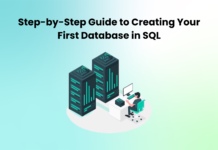Applied AI Machine learning have become part and parcel of the everyday lives of a certain part of the global population. And it affects the other parts in some way or the other nonetheless. We have accepted AI-driven augmentations in factories with computer vision powered devices tracking our vehicles. we are happy to possess devices that can look right through our choices and habits and recommend new commodities. We are quite excited about machine learning being employed in medical science, for speeding up diagnosis and creating more accurate prescriptions. But are we really prepared for the all-pervading presence of applied AI Machine learning in the healthcare sector, especially when it comes to patient care?
Why do we emphasise the matter of healthcare?
Healthcare sector is an area of public service with very little tolerance for error. A robust and feasible application of informatic methods such as Machine learning, followed by incorporation artificial intelligence can not only reshape the contemporary infrastructure, also provide more efficient means of diagnosis and treatment of certain disorders. Today’s machine learning tools are capable of identifying Skin anomalies by using advanced photoreception and image comparison alongside spotting abnormal metabolism by simply analysing bio metabolic and diagnostic information. Almost perfect analysis of photo and sonic invasive data such as X-ray, USG, MRI, CT scans; electrophysiological data like EEG EMG etc are now very much possible with proper training of models. Despite the initial consummation of time it is a worthwhile task to take up.
The challenges
However, the risk involved in relying upon the artificial, in silico systems with human lives, is still debatable. Self-correcting abilities of machine learning tools are still in question. While flawed, it is full of promises. But whether its efficacy is worth risking human lives in masses still remains uncertain.
Medical grade artificial intelligence is also a far fetched Idea for immediate application in healthcare. Successful implementation of machine learning tools for a significant amount of time can pave the way for artificial intelligence to roll out in the healthcare industry.
The economic question
In the long run, a rapidly increasing population of humans on this planet will require more jobs for daily bread and a sustainable future. If unleashed with its full potential machine learning tools alone can render thousands if not millions jobless which might sadly include doctors and nursing personnel.
And in the case of artificial intelligence, implementation of the tech will give rise to ethical lightning rods and intellectual hotspots for endless debate. What if it decides to take over for the betterment of humankind instead of serving organic lesser intelligent beings? What if virtually undetectable errors accumulate into something bigger and irreversible?
Further deliberations
Keeping in mind the benefits of the paradigm shift in the health industry resisting the thought of a medically able artificial intelligence-based mechanism of treatment is utterly impossible.
Can a better quality of service be delivered at a cheaper rate, without risking human lives? Still remains the million-dollar question for the world.
A typical discussion of pros and cons will further complicate the matter as the ethical parameters of implementing such a system worldwide or even countrywide are still debatable. The most crucial obstacle of an artificially intelligent healthcare system armed to its teeth with machine learning tools will be presented by the diversity of humans as a species. Region-specific changes in physiology, genetics, diet and other environmental factors might contribute and complicate the development process for such a system. Therefore, a standardized system worldwide is out of the question at this point in time.
The toughest question
Today however, machine learning can achieve perfection in the diagnosis of multiple disorders and analysing apparently huge data sets to draw conclusions that an ordinary human being can not. Though making a decision still requires organic supervision over the Silico entities.
The most conclusive factor in the implementation of artificial intelligence and machine learning in healthcare is the way people of a region think at a given point of time. Will everyone just willingly give in and accept machines over human effort? Will there be resistance? How much time and wealth will it require to mingle into the service of humanity? How many of us will lose our jobs? Will the benefits overwhelm the shortcomings of the process?
With these many questions left in the thought-scape will it be able to quench the thirst, hunger and familial needs of mankind?
Only time can reveal.

































